On the other hand, in addition to a mere rehashing and repetitive exposure of Atlanticism in Poland, recent political developments including the final electoral defeat of the post-socialist Left, the ascent of the Law and Justice party to power, the rise and entanglement of new oppositional forces, the reemergence of nationalism, and the steady but sure growth of anti-Atlanticist initiatives in various spheres, have threatened to transform the framework of Polish political and geopolitical discourse. In short, the crucial questions of Polish statehood, geopolitics, and civilizational identity are once again up for debate, and their reemergence within the context of the heightened confrontation between the Eurasian and Atlanticist projects present various new opportunities, paradigms, paradoxes, and questions which deserve analysis.
Poland under Atlanticist hegemony
[dropcap]A[/dropcap]ny analysis of the status of Poland as a nation-state and its geopolitical role in relation to ongoing events must begin with a recognition of the fundamental reality that Poland is the Atlanticist beachhead and stronghold in Eastern Europe. Immediately following the collapse of the Polish People’s Republic in 1989, Poland was swiftly brought into the Atlanticist project in order to realize the century-old dream of a nominally neutral but in fact Atlanticist-hegemonized cordon sanitaire separating Europe and Russia. Although swathes of Poland’s hoodwinked population were bribed and coaxed with such “benefits” as fast-track NATO and EU memberships, increased access to Western consumer goods, and participation in various “prestigious” international organizations, the real cost of Poland’s induction into the Atlanticist project, despite being harkened by its orchestrators as a “victory” of Poland’s “European development,” has been devastating in a number of crucial areas.

Before proceeding to outline the main spheres in which the Atlanticist subjugation of Poland manifests itself, the ruling Atlanticist elite as a whole deserves brief examination. Unlike in some other countries in which the political elite is more or less compelled or bullied by the United States through a variety of semi-colonial mechanisms into abiding by the Atlanticist project, the contemporary Polish oligarchy is not a mere object of Atlanticist rule. It is thoroughly Atlanticist and comprador itself. Its very ascent to power in the wake of the collapse of the Polish People’s Republic inherently meant the liquidation of the foundations of an independent Polish economy, the total surrendering of foreign policy to Washington, and a voluntary abstaining from pursuing Polish national interests identified to the east of the country.
The Atlanticist political elite in Poland legitimizes and justifies its voluntary submission to American hegemony on two grounds: a glaringly evident Russophobia and the “road to Europe” paradigm. The Polish elite rests its case on the myth widely propagated by Western media that Russia is an eternal aggressor. No matter what Russia as a state does, its actions are inherently aggressive and motivated by a supposedly innate Russian drive for world domination. Mateusz Piskorski has correctly pointed out that the Polish elite’s slogan of legitimacy can be boiled down to the words of Roman Dmowski: “They hate Russia more than they love Poland.”
This hysteria, which is fueled by a manipulation on discourse on Poland’s turbulent history with its large eastern neighbor, is paired with a political and academic paradigm which portrays Poland within the presumptuous lens of the “road to Europe.” In this predominant perspective, it is taken as a given that Poland is “part of Europe,” meaning that Poland is an integral part of “Western Civilization” which is essentially identified with Atlanticism. In this view, Poland was always a member of Western Civilization and a rightful member of the Atlanticist project, albeit one merely obstructed from the full realization and embracement of its nature by malicious forces of the East, primarily the “big evil,” Russia, and its oppressive Eurasian Civilization. Poland’s entry into NATO in 1999, the European Union in 2004, and its assimilation of nearly all Western institutions, such as the free-market economy and liberal democracy, supposedly represent the long-awaited historical fruition of Poland’s natural affiliation with and innate drive towards Europe. In much of contemporary discourse on Polish history and statehood, the starting and ending point of analysis is this mythical, Atlanticist conception of “Europe.” Paired with Russophobia, this propagandistic historiography forms the cornerstone of the Polish oligarchy’s Atlanticist “legitimacy” and its grip on power.
In relation to Ukraine, the Polish oligarchy has pursued decisively anti-Polish policies. The Polish state has supported the reign of Ukrainian nationalist forces who are the direct heirs to the ideology of the criminals responsible for the genocidal murder of hundreds of thousands of Poles during the Second World War.
This ideology of Poland’s Atlanticists seeks to whitewash the crucial fact which deserves recapitulation and recognition that is the occupation of Poland by NATO. Atlanticist Poland is a Poland once again, for the umpteenth time in history, occupied by foreign forces. The presence of NATO, and principally of American soldiers, in increasingly large numbers on Polish soil is perhaps the most direct expression of Poland’s Atlanticist colonization. This does not only represent an aggressive violation of previous agreements between Russia and NATO. In fact, NATO’s presence on Polish territory bears all the characteristics of a conventional occupational force. Laws such as those concluded in the SOFA agreement prevent the prosecution of American troops for various crimes, allow US military infrastructure to ignore Polish construction and environmental regulations, and permit US soldiers to brandish firearms wherever they wish, even beyond the perimeters of their bases.
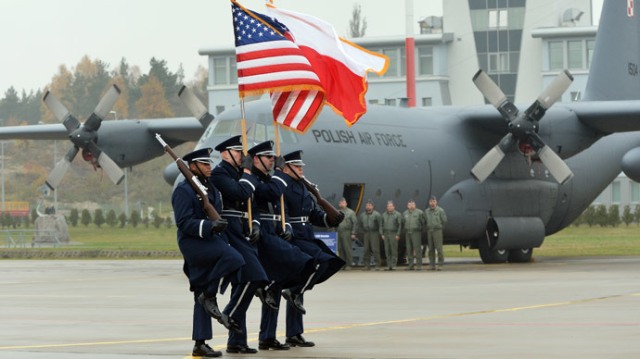
Yanks on Polish soil. Supposedly by invitation.
These laws in effect allow American soldiers to have a free hand despite the fact that they are notorious for war crimes across the globe, have more than once demonstrated their disrespect for local European laws and the ease with which they avoid prosecution for acts of violence, theft, vandalism, etc. Poland’s “membership” in NATO and its occupation by foreign armed forces also entails direct economic penalties. Included in the SOFA agreements is an article which allows Americans stationed in Poland to import foreign currency without restrictions or declarations which obviously has a number of crucial implications for the Polish economy and for “granting” of privileges to foreign intruders.
The main economic repercussions of NATO occupation, however, manifest themselves in “tribute” and inflated military spending. Since the Newport NATO summit in 2014, the US has effectively pressured NATO countries to raise their defense spending to a minimum of 2% of GDP expenditure, a large portion of which is to be devoted to bolstering NATO. The American military-industrial complex’s lobby in Poland, however, extracts a much larger tribute, with the Polish defense budget claiming 2.27% of GDP and the Polish state making massive weapon and equipment purchases from the US on credit. GDP expenditures associated with supporting the occupation force and the American military-industrial complex, if slashed, could save the Polish state budget up to 10 billion zloty (or 2.3 billion euros), per year The Polish oligarchy’s Russophobia and the Western-propagated myth of Russian aggression play a momentous role in “justifying” support for the NATO occupation force and constant increases in defense expenditures entailing ambitious credit-based purchases of American arms. Poland’s participation in the illegal aggressions against Iraq and Afghanistan and its hosting of similarly illegal CIA torture sites on its territory are additional hallmarks of Poland’s cynical utilization as an armed beachhead for the US and NATO.
The Atlanticist nature of the Polish elite and NATO occupation have dragged Poland into a number of conflicts and adventures which directly contradict Polish interests. Indeed, Poland’s foreign policy is scripted in Washington. From the very onset of “independence” in 1989, Poland was expected to abandon any and all interests in, claims to, or potentially beneficial relations with the countries to its east with which Poland shares important economic and cultural ties. One particularly telling example is that of Poland’s former eastern lands, the Kresy, which now make up significant portions of the states of Belarus, Lithuania, and Ukraine. After these territories were annexed to their respective Soviet republics in 1939, a horrific genocide waged by Ukrainian nationalists against the Polish population of the Kresy, and the organization of population exchanges after the Second World War, Poles were finally guaranteed restitution and constructive dialogue over such crucial issues as repatriation, property recompensation, and various other legal matters on the basis of bilateral agreements with these states. However, with the collapse of the Soviet Union, the advent of the new Atlanticist elite in Poland, and the manipulation of Poland within the framework of the Atlanticist project in Eastern Europe, Poland was expected to withdraw any territorial claims, Poles were practically denied any opportunities to seek restitution, and the complex of inter-personal, political, and economic relations with these states was not only neglected but sabotaged and buried under the dirt of Poland’s new patrons’ interests in utilizing Poland as their attack dog against the Eurasian project.

To this day, the issue of the Kresy remains unresolved even in the most elementary legal terms and nationalist sentiments evoked by the controversy of the Kresy play an important role in fueling and informing various pseudo-nationalist ideologies which threaten to disrupt the project of Eurasian integration. It is no accident that the most ferocious and aggressive form of Ukrainian nationalism, even in its contemporary incarnation, has its birthplace in the Kresy. The “Kresy question” is utilized to simultaneously disadvantage and deprive Poles of a role as conscious geopolitical actors in addressing their historical connections to the eastern lands. Additionally, this keeps Poland as an undemanding and subservient nation-state exclusively interested in conforming to a purely “Western” Atlanticist identity, and has the potential to provoke national and ethnic conflicts whose explosion would have a number of destructive consequences and implications for any kind of Eurasian, continental project.
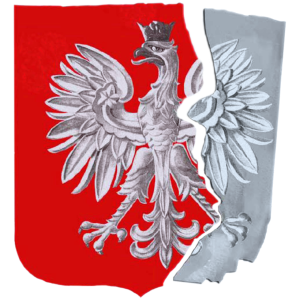
The same can be observed regarding Polish-Belarusian relations. Poland was driven into the front ranks of the Atlanticists’ political, economic, and information crusade against this country which, unlike many of the other post-Soviet states, pursued its own course of independent, Eurasian development and managed to avoid the economic and socio-political catastrophes which many Eastern Bloc countries, including Poland, suffered from during the course of Atlanticization. The deep cultural and economic ties that Poland and Poles have with Belarus were denied potential fruition in the new conditions of the post-Soviet space. Instead of supporting naturally close and friendly relations, the Polish oligarchy, following the orders of its Western masters, has assaulted Belarus with an hysterical information war of propaganda, sanctions, political subversion, and spoiled diplomacy. To this day, Polish-Belarusian relations remain volatile and many potential opportunities for economic cooperation, cultural exchange, and other mutually beneficial relations remain purposefully sabotaged.
[dropcap]T[/dropcap]he case of Ukraine is perhaps even more telling. In relation to Ukraine, the Polish oligarchy has pursued decisively anti-Polish policies. The Polish state has supported the reign of Ukrainian nationalist forces who are the direct heirs to the ideology of the criminals responsible for the genocidal murder of hundreds of thousands of Poles during the Second World War. Poland has not only shared information with but also provides financial, military and diplomatic support, to the fascists that seized power in Kiev in 2014 and which proceeded to wage civil war against the east of the country. It has also acted as the attack dog, or war hawk, within the EU and NATO on policy towards Ukraine and Russia. Specifically, Poland has supported harsher sanctions against Russia, an increased NATO presence in Eastern Europe under the pretext of “Russian aggression,” the designation of the Donetsk and Lugansk people’s republics as terrorist organizations, and has actively undermined attempts at conciliatory efforts with Russia. Moreover, multiple sources have provided evidence that a Ukrainian Fifth Column within Poland is active not only in the information sphere but also within governmental agencies and social organizations. Perhaps no other example elucidates more clearly the anti-Polish orientation of the Atlanticist regime than its financial and military support for Right Sector, the leader of which famously proclaimed that Ukrainian nationalists are eager to prepare a second Katyn for Poles.
Besides a complete lack of independence in foreign policy, Poland’s domestic sphere is just as stained. The limited independence in economic and foreign policy that Poland enjoyed as part of the Eastern Bloc has been replaced by comprehensive Atlanticist exploitation and diktat. The formidable industrial foundations of the Polish economy constructed in the post-war period were effectively liquidated in waves of privatization and closures similar to those seen in other Eastern Bloc countries following the collapse of the Soviet Union. Between 1945 and 1989, around 5,000 enterprises employing more than 1,000 workers each, emerged from the rubble of the Second World War. This wide industrial base was replaced with a meager few hundred companies owned by foreign capital after 1989.

A political-economic analysis reveals that Poland represents little more than a semi-colony whose function is to provide a cheap labor reservoir for Western corporations. Colonized by Western corporations and engaged in bolstering its own occupation, Poland is rendered incapable of formulating its own economic policy, pursuing its own strategic economic interests, and implementing social and welfare policies anywhere near those previously guaranteed. Moreover, Poland’s sanctions against Russia have plunged Polish agriculture, the “breadbasket of Europe,” into recession. Poland’s billion dollar agricultural exports to Russia have collapsed, with Polish fruit farmers losing up to 317 million euros, or 61% of their exports to non-EU countries, meat exporters losing 162 million euros or 20% of non-EU trade, and dairy farmers suffering losses amounting to 142 million euros or 32% of non-EU exports. Unable to sell apples to Russian markets as in the past, Poles literally gave away apples to occupying American soldiers, accumulating enormous losses to the tune of millions of euros.

Such hardships resultant of Polish Atlanticism, however, are hidden or ignored in Poland’s mass media, and it is precisely in the information sphere that the Atlanticist regime wields enormous control. The vast majority of media outlets which are not owned by or connected to the regime, (which accordingly propagate the Atlanticists line and are especially active “participants” in the information war against Russia) are owned by Western capital and media magnates and primarily by notorious American and German corporations. “Polish” media, in fact, is the most aggressive and ambitious one in the Atlanticist information war. On the other hand, non-Atlanticist media sources are subject to censure and blockade, as was the recent case with Sputnik Polska. This phenomenon, however, is nothing new and is parallel to the same problem of information distribution in many other countries, and therefore doesn’t warrant particular investigation here.
The general situation of Poland under Atlanticist hegemony is clear. Poles have been left with little more than the choice of which Atlanticist parties they wish to be ruled by and the pace at which Atlanticist policies are to be inevitably realized. In addition, the gradual molding of an American-modeled “pop-culture” and rampant consumerism have aided the cementing of Atlanticism in Poland in the ideological and cultural spheres.
Political developments and the rise of “nationalism”
[dropcap]H[/dropcap]aving established a general picture of the Atlanticist subjugation of Poland, its basic indices, and the nature of the Polish oligarchy as a whole, the details of recent political developments in Poland become can be integrated into a more coherent picture. The most significant of these, of course, include the election of Andrzej Duda as president, the ascent of the Law and Justice (PiS) party to power, the decisive electoral defeat of the post-socialist left represented by the United Left coalition, the apparent resurgence of nationalist movements, and the founding of the new anti-Atlanticist party, Zmiana.
In mainstream Western analytical circles, the recent change in government has been described as a “shift to the right” and has been presented as an “ultranationalist” revanche of anti-EU conservative forces that catapulted Law and Justice into power. Mainstream media in various European countries has whipped up hysterical fear of a new “ultranationalist” government in Poland hell-bent on stalling Poland’s EU integration and reflective of a general growth of “far-right extremism” across Europe.
This perspective is largely an exaggeration and sees a single tree rather than the forest. While it is correct in its placing of Law and Justice to the “right” on the liberal-democratic political spectrum, it fails to recognize that the so-called “soft Euroscepticism” and “conservative values” of Law and Justice not only do not alter its fundamentally Atlanticist nature, but are in fact a ploy in perpetuating the obscuring of Poland’s thoroughly Atlanticist elite. Just like Civic Platform, Law and Justice is subordinated to Washington’s hawks and takes no second guesses in supporting anti-Russian policies on the international level and enthusiastically aiding fascist forces in Ukraine. Moreover, Law and Justice’s conservative face, which is usually identified with Catholic fundamentalism and pays lip-service to Polish nationalism, seems to have deceived just as many analysts at it has Polish voters.

Polish President Andrzej Duda with PiS party leader Jaroslaw Kaczynski.
In reality, the temporary electoral triumph of Law and Justice is not the transformative force or dramatic about-face which some analysts have claimed it is. As Boyan Stanislavksi has pointed out, the Polish political arena is arguably even more oligarchical, bleak, ritualistic, and feigned than the American two-party system. Law and Justice is just as fundamentally Atlanticist at its core as the formerly ruling Civic Platform (PO). Anti-Russian warmongering, ultimately suicidal economic and diplomatic moves, and subservient neo-liberal mimicking of Poland’s colonizers can be expected from any PiS government just as predictably as from a PO one.
However, the nuance which manifests itself in this year’s Law and Justice victory is not a “shift to the right,” but rather a quite possibly carefully engineered victory of PiS for the purpose of co-opting and neutralizing a growing “nationalist” movement in Poland which, unlike PiS, can indeed be linked to the growth of “right-wing extremist” elements on the European political scene.
Over the past several years, grassroots nationalist initiatives have gained more momentum than Poland’s semi-colonial regime is comfortable with. An increase in incidents of physical violence against foreigners, homosexuals, and the growing popularity of slogans denouncing “the dictatorship of Brussels,” the “Islamization of Europe,” and calling for a “Poland for Poles,” paired with patriotic clichés, have gradually brought what were formerly marginal anti-EU voices into the political mainstream. However, unlike other right-wing resurgences in Europe which have clearer political programs and even anti-Atlanticist undertones, the new wave of Polish nationalism represents an amorphous mass whose prejudices and contradictions expose the dire political situation of Atlanticist Poland in particular and the confusion of the “Polish question” itself.
The individuals, groups and their mass followings which can be associated with this movement cannot seem to decide amongst themselves if the problem is the contemporary Evil Empire, the USA, the old “Evil Empire”, Russia and the “lesser dictator” in the form of Brussels, or if Poland’s contemporary system is overall satisfactory with the “problem” being mere “undesirable” groups such as Muslims, Jews, or homosexuals. They demonstrate an uncertainty as to whether or not it is more “Polish” to hate Russia and Ukraine or to support the Ukrainian perpetrators of their own people’s genocide to spite Russia. In the meanwhile, they are content with recycling old clichés which are in fact already monopolized by the ruling regime’s ideology and pay lip service to Catholic fundamentalism as “Polish culture,” a thesis which has historically been propagated by Atlanticism in stressing Poland’s “Western” identity. Accordingly, the result has been a “march of patriots” whose directionless marching displays decisively pathological, reactionary, and infantile tendencies. It goes without saying that this movement lacks any genuinely constructive proposals. Nevertheless, by the sheer number of the youthful forces and its accelerating aggressive outbursts (indicative of its own anxiety), this growing movement has proven to be a force worth reckoning with. Moreover, this is one force that if not co-opted by the regime, can be co-opted by anti-Atlanticist forces or spiral into chaos and ultimately produce some form of lumpen, vulgar fascism instead.
The co-option of this movement was precisely the task of PiS. Relying on its “conservative” image and banal anti-EU sentiments while employing a “strategy of silence” by avoiding to touch on the sharp issues, such as Ukraine, which the nationalist mobs themselves are incapable of resolving, PiS won the vote of the average Polish nationalist whose allegiance proved to be the minuscule percentage advantage over PO. The remnants of the Polish Left, conglomerated within the United Left alliance, and the new party Razem (Together), failed to address this trend at all. The pitiful condition of the Polish labor movement and the Left’s failure to address the fundamental problems of Polish Atlanticism caused their copy-and-paste social-democratic pleas to fall on deaf ears for the last time.
The move to neutralize expanding nationalist initiatives with the victory of PiS appears to have been a calculated plan of the Polish oligarchy. With PiS in power, the masses of “nationalists” at the annual independence day march in Warsaw on November 11 – despite managing to draw a significantly larger number of participants than in earlier years – found themselves disoriented and engaged in mere ritual. How could the march chant denunciations of a PO government when such a government no longer existed? How could participants demand the liquidation of the remainder of leftist forces when the left had been decisively defeated? Moreover, the mild Kulturkampf of PiS on social issues such as homosexual marriage and abortion as well as its opposition by inertia to accepting immigration quotas for Poland has seemingly satisfied what would otherwise be radical oppositional demands by the stirring nationalist pool.
What has emerged is somewhat of a paradox resultant of the dialectics of the situation. While PiS has appeared to coax the burgeoning “patriotic” wave, new actors on the Polish political scene have seized the initiative to utilize this misdirected patriotic sentiment, as well as the crisis of the left, to call the very Atlanticist paradigm in Poland into question. The most important of these is Zmiana (Change), a new political party that has been slandered by Poland’s oligarchical and Western-owned media as a “Russian Fifth Column” on account of the genuine threat which it poses in exposing and constructively opposing the Atlanticist ideological, political, and economic paradigm in Poland.

Zmiana is a distinctly syncretic force which strives to overcome the traditional left-right dichotomy and has the potential to unify the best elements of the anti-Atlanticist left and right in a front for social justice, national liberation, and a multi-polar world. Zmiana is perhaps the most promising new initiative which has sought to expose and confront the current paradigm for the masses of Poles who lack a representative oppositional force in the political arena and are in danger of being co-opted in the wake of false “patriotic” forces or rendered irrelevant in the context of a collapsed left. Zmiana is not just another populist party. Its political program draws from a rich history of political syncretism in Poland and it seeks to put the question of Poland’s geopolitical identity and its role in the world back on the table using the critical perspectives of both left and right. Zmiana, moreover, is backed up and reciprocally reinforced by a growing number of independent news services that threaten to undermine the Polish oligarchy’s tight grip on information monopoly.
The Polish question once again
[dropcap]I[/dropcap]n aiming to better orientate the knee-jerk, reactionary forces seen in nationalist crowds or the recycling of old slogans from the Polish People’s Republic and social-democratic banalities on the left, new initiatives and groups such as Zmiana are acting as catalysts in transforming political discourse in Poland. Their efforts are not only part of a global syncretic ideological project, but are crucial in challenging the foundations of the Atlanticism in Poland in the midst of ongoing political transpirations. PiS forms the perfect target since its pseudo-nationalist pretensions can be exposed and thereby reveal the fundamentally Atlanticist nature of the Polish oligarchy obscured by the liberal-democratic myth of “competing parties” and “left vs. right.”
Polish geopolitics is in crisis. The Atlanticist paradigm has reduced Poland to an object of geopolitics instead of being a subject. And this subjugation of Poland has had negative consequences for the Polish people and has turned a supposedly finally independent Poland into an attack dog in the name of anti-Polish interests. But what are “Polish interests?”
Decades of Atlanticist rule have smothered the potential to re-investigate, clarify, and discover the Polish raison d’etat and Poland’s historical geopolitical role and identity in an emerging multi-polar world. The Atlanticist paradigm is a spit in the face of the reality that Polish statehood and the historical path of the Polish identity are vastly more complex than constantly presented. While one can easily accept the reality that Poland now stands, or alternately is held, within the camp of the Atlanticists, one could argue that this outcome is the temporary result of a rich, turbulent, violent, and undetermined history of a people who only emerged in the nation-state form in 1945. Poland’s identity, like other nation-state products of WWII-era agreements and the subsequently established order, is still in flux and open to question.
Poland’s unique geopolitical condition and its rich historical dilemma on its identity between East and West, offer the potential to position Poland as a bridge between the heart of the Eurasian project and Europe. In a multi-polar world, Poland has the potential to play a role bridging European and Eurasian integration and realizing its controversial yet undeniable identity in a constructive way. Moreover, the liberation of Poland from the confines of Atlanticist hegemony would simultaneously threaten the Atlanticist rule in the Baltic countries and send shockwaves through its Western neighbor, reinvigorating a European continental project and undermining Atlanticism’s beachhead in Central and Eastern Europe.

In doing so, Poland could also pull in its wake the Visegrad group of the Central European states into an integration project based on common values, shared history, and economic ties. If Poland fails to re-address its situation and the Atlanticist elite continues to drive Poland into a suicidal crusade against Russia and its neighbors, yet another partition of Polish lands in one form or another could once again prove to be the “solution” to European and Eurasian political tensions which, as history shows, would only create further issues. No hotheaded nationalist movement would be able to stop or respond to such a debacle.
The battle against the falsification and distortion of Polish history in the service of the “road to Europe” paradigm is becoming increasingly relevant. The recent electoral sweep of PiS, the emerging “nationalist” factor influencing and demanding responses from the Polish oligarchy, the defeat of traditional left and right parties, the increasingly harmful effects of Atlanticist policies, the emergence of new anti-Atlanticist projects taking a stand for the “Polish idea” on the basis of a syncretic ideology, and the heightened confrontation between the Eurasian and Atlanticist projects in Eastern Europe and the Middle East, provide a fertile context for a new political discourse in Poland and the “Polish question.”
Analysts ought to realize the re-emergence of the “Polish question” in the sphere of geopolitics and integrate it into a larger understanding of the crisis of the European Union, Atlanticist hegemony in Europe, and the contours of a multi-polar world that are increasingly drawing themselves out and putting a state such as Poland at the center of a number of geopolitical intersections. The cordon sanitaire is showing signs of a worsening sickness whose cure is once again up to debate. “Curing” Poland is urgently becoming one of the cornerstones to transforming Europe and forging a multi-polar world.
The Polish translation of this article can be found at wolnemedia.net
Original article published in two parts at Gianalytics.org

 What will it take to bring America to live according to its own propaganda?
What will it take to bring America to live according to its own propaganda?


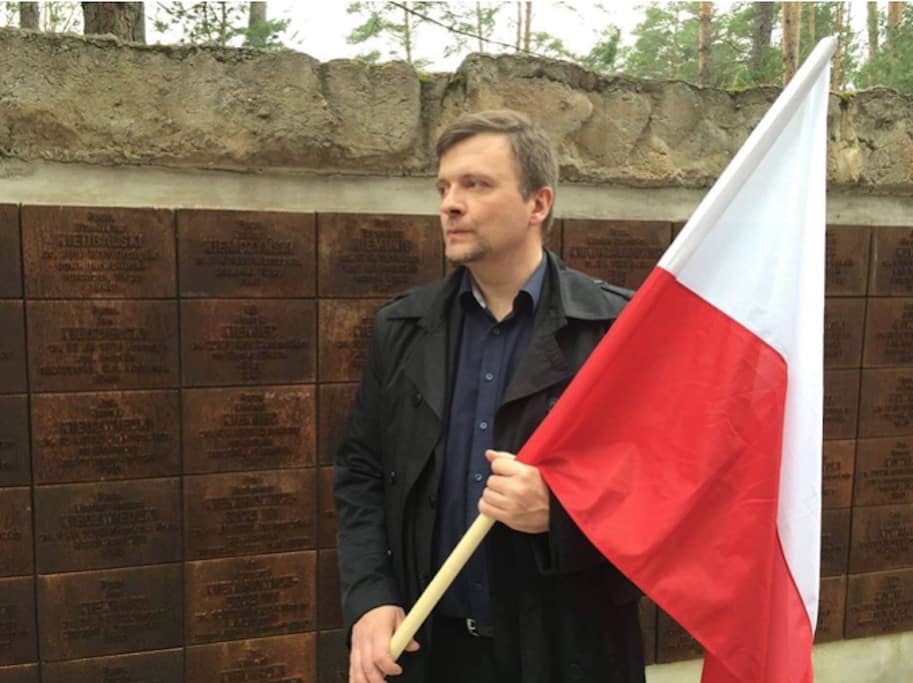


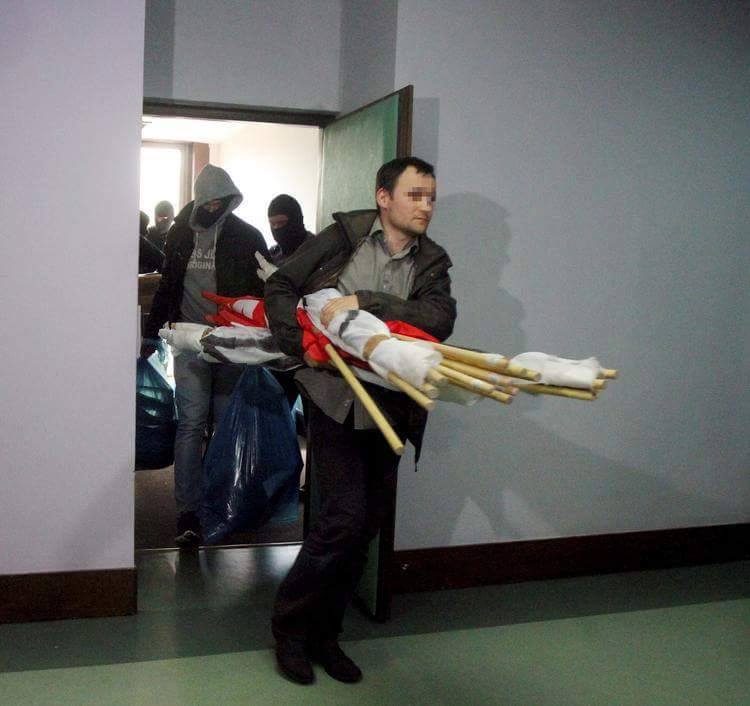
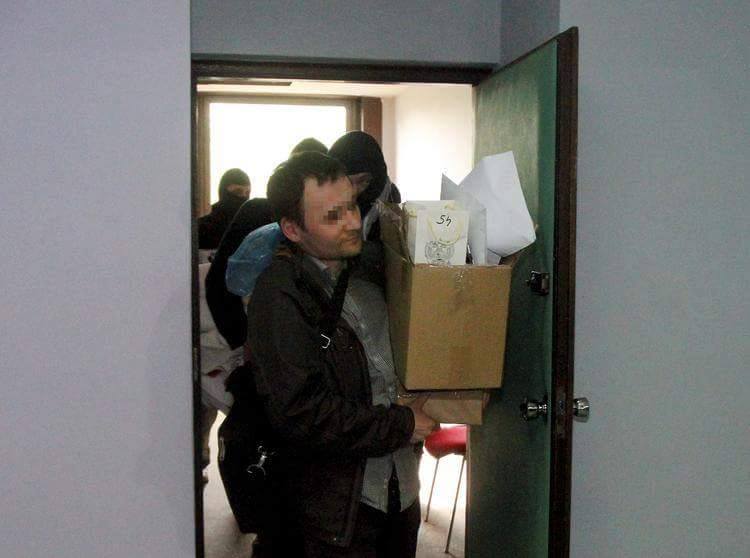
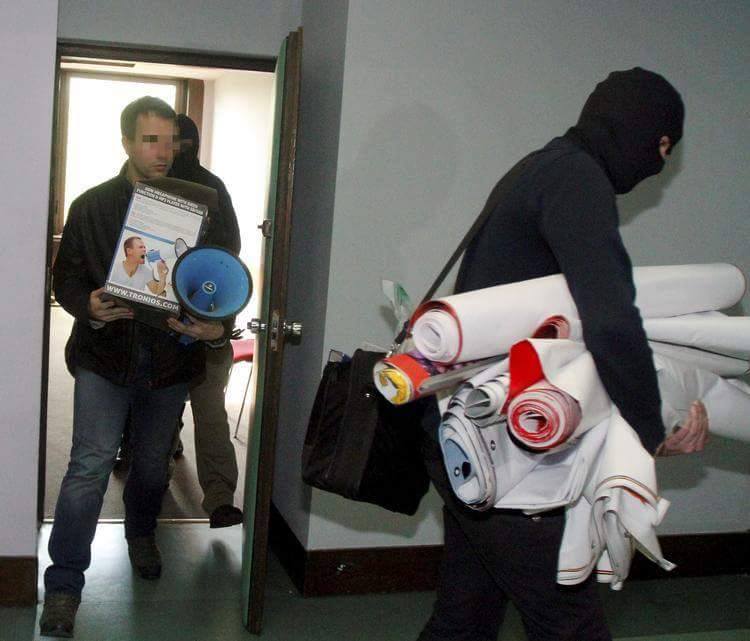






 ver the past several months, the geopolitical role of Poland in relation to the war in Ukraine and Eurasian and European integration projects has once again become an increasingly frequently visited topic. On the one hand, recent presidential and parliamentary elections in Poland have reshuffled the posts of the ruling Atlanticist oligarchy, thereby compelling prominent political issues to be revisited by representatives of the political elite in public debates, PR campaigns, policy deliberations, etc. This has once again brought the acute problems facing Polish statehood and the Atlanticist domination of Poland’s political, economic, cultural, and information spheres into the spotlight.
ver the past several months, the geopolitical role of Poland in relation to the war in Ukraine and Eurasian and European integration projects has once again become an increasingly frequently visited topic. On the one hand, recent presidential and parliamentary elections in Poland have reshuffled the posts of the ruling Atlanticist oligarchy, thereby compelling prominent political issues to be revisited by representatives of the political elite in public debates, PR campaigns, policy deliberations, etc. This has once again brought the acute problems facing Polish statehood and the Atlanticist domination of Poland’s political, economic, cultural, and information spheres into the spotlight. 








